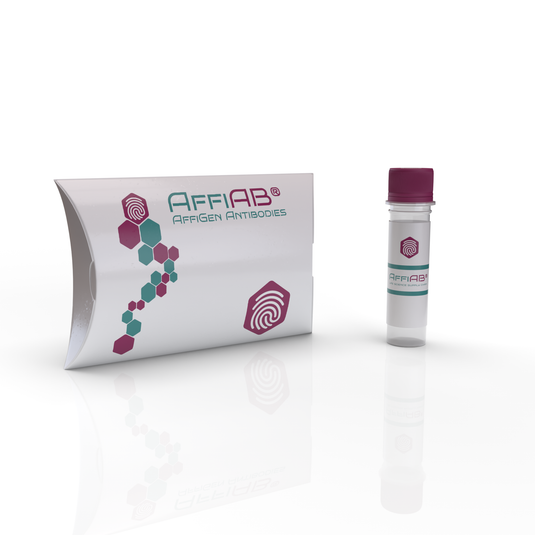AffiAB® Goat Anti-Rab7a Polyclonal IgG Antibody is a specialized antibody offering high sensitivity and specificity against Rab7A protein expression. Enjoy lab-tested accuracy and reliability in your research.
The AffiAB® Goat Anti-Rab7a Polyclonal IgG Antibody is an antibody specifically designed to target and bind to the Rab7a protein. Rab7a is a small GTPase protein that plays a critical role in regulating intracellular vesicle trafficking, including the late endosome-lysosome fusion and autophagy processes.
This polyclonal antibody is produced by immunizing goats with purified Rab7a protein or a specific peptide derived from Rab7a. The resulting antibodies are then purified from the goat serum to ensure high specificity and quality.
The AffiAB® Goat Anti-Rab7a Polyclonal IgG Antibody is widely used in research to investigate the expression, localization, and function of Rab7a in various cellular processes. By specifically detecting and visualizing Rab7a, researchers can gain insights into its involvement in endosomal trafficking, lysosomal biogenesis, and degradation of cellular components.
Researchers utilize techniques such as immunoblotting, immunofluorescence, immunohistochemistry, and immunoprecipitation using this antibody to analyze Rab7a protein expression, subcellular localization, and interactions with other proteins or cellular components.
It is important to note that the AffiAB® Goat Anti-Rab7a Polyclonal IgG Antibody is specifically designed to recognize Rab7a and may not cross-react with other Rab proteins or related molecules. Researchers should validate the antibody's performance and specificity in their specific experimental conditions by conducting appropriate controls and assays.
In summary, the AffiAB® Goat Anti-Rab7a Polyclonal IgG Antibody is a valuable tool for studying the expression, localization, and function of Rab7a in various cellular processes. By specifically detecting Rab7a, researchers can advance our understanding of endosomal trafficking, lysosomal biogenesis, and autophagy, contributing to fields such as cell biology, molecular biology, and immunology.

